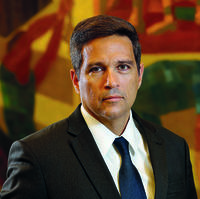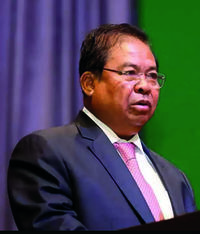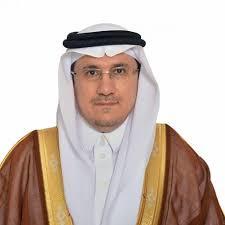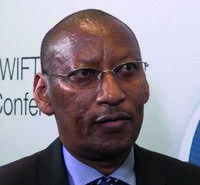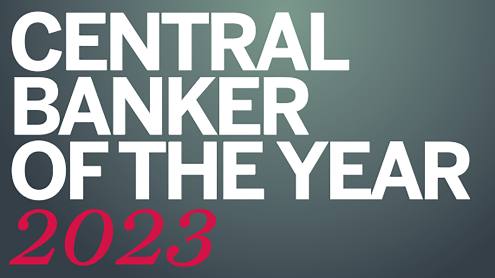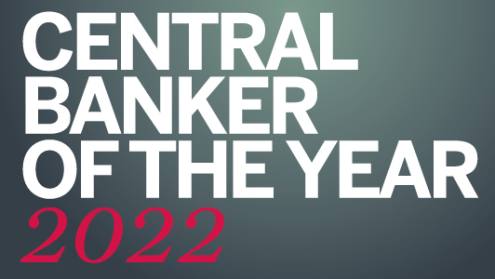Global and Americas
Roberto Campos Neto, Central Bank of Brazil
Few countries have been affected by Covid-19 in the same way as Brazil. As of mid-December, its death toll related to the pandemic was still the world’s second highest, after the US. But while earlier in 2020 expectations were for Latin America’s largest economy to contract by more than 9%, figures were sharply revised towards the end of the year to about half that — the International Monetary Fund’s forecast moved from 9.1% to 5.8%, while some analysts believe the contraction will be a lower 4.5%.
Much of this more hopeful scenario is due to the work of the Central Bank of Brazil. The monetary institution responded to the crisis by taking unprecedented and effective measures to ensure liquidity wouldn’t dry up in the financial system and took further specific action so that companies, particularly small businesses, could continue to operate.
Overall, the Brazilian central bank’s liquidity programme amounted to an impressive 17.5% of the gross domestic product (GDP), and it was coupled by further measures that freed up financial institutions’ capital and which, the bank says, had the potential to increase credit by the equivalent of up to 20% of GDP. It also obtained temporary authorisation from Congress to buy and sell private assets to further prop up liquidity in the financial system, which ended up also supporting the local currency bond market.
In its monitoring activity, the central bank recorded healthy volumes of credit not only to big corporates but also to small and micro entrepreneurs, and across all sectors. “From March to November, new credit operations to large firms amounted to $133bn, while credit to small and medium-sized and micro enterprises added up to $97bn,” notes governor Roberto Campos Neto. “The measures for credit and liquidity support had a positive impact on the credit market and have helped the Brazilian economy to recover.” The central bank expects GDP to expand by 3.5% in 2021.
But economic growth, says Mr Campos Neto, will need to be sustainable and consider aspects that traditionally are not factored in economic and monetary models. This will be a new challenge for the central bank, as it will be ensuring that the financial system quickly adapts to the trends that have been accelerated by the crisis, such as the digitalisation of services. “Society demands that the recovery be more sustainable and inclusive,” says Mr Campos Neto. “At the same time, technology is rapidly changing the provision of financial services, and the key feature of this revolution is the ability to produce, store and process data.”
Society demands that the recovery be more sustainable and inclusive
In 2020, Brazil’s central bank added a sustainable dimension to its reform agenda to evaluate environmental issues and risk from a financial perspective. It also worked on two major digital initiatives. PIX, its instant payment system, was launched in November and aims not only to improve consumers’ and companies’ experience of digital payments, but also, crucially, to foster the creation of new business models that respond to the digitisation of the wider economy, as well as of society. The system is set to contribute to the digitalisation of financial services and to open up those services to wider parts of the population.
Brazil’s open banking initiative, to be launched in 2021, is geared towards achieving the same inclusion and development goal. It will open up access to financial information and aims to ensure that the owner of that information is the financial services customer.
“Our goal is to make the Brazilian financial system more efficient, modern and to promote the democratisation of financial services,” says Mr Campos Neto. In recognition of these efforts, as well as his competent response to the crisis, The Banker has recognised Mr Campos Neto as the Global Central Banker of the Year 2021.
Central Banker of the Year, Asia-Pacific
Chea Chanto, National Bank of Cambodia
Under the governance of Chea Chanto, the National Bank of Cambodia (NBC) has successfully navigated a stormy 2020. The health crisis created by the coronavirus has been well managed, with fewer than 400 cases confirmed and zero deaths recorded (as of December 2020). However, the country has also been hit with the massive impact of lost tourist revenue, and was struck by flash floods in the autumn, impacting five million people.
Despite these conditions, Cambodia is forecast to see 1.9% growth in gross domestic product during 2020 — a respectable number in any year, but remarkable considering the hardships the country has faced.
Following the impact Covid-19 and flooding have had on businesses, the central bank stepped up to help out companies experiencing financial hardship. The NBC informed the Association of Banks in Cambodia and the Cambodia Microfinance Association that loan restructuring measures introduced in March 2020 will continue until the end of June 2021. Restructuring is permitted up to three times without any impact to the loan classification during the extension period. Further provisions include the reduction of interest rates and waiving fees. The measures taken mean the country’s rate of non-performing loans has remained low at around 2.5%.
Cambodia has also stayed on track with the promotion of digital banking. The NBC launched a digital currency, Bakong, in October 2020 to help promote financial inclusion, as many companies still pay employees in cash. The currency can support transactions made in both US dollars and Cambodian riels. Transactions are made via the Bakong app, with users scanning a barcode or entering the mobile phone number of the recipient, with all transactions conducted using blockchain. Some 20 local financial institutions are involved with Bakong.
The country’s fiat currency has also been promoted this year, as Mr Chanto called for greater use of the Cambodian riel, stating it will be a way to encourage sustainable growth and develop an effective banking system, away from a dependence on the US dollar. Low-denomination dollar notes have begun to be phased out of circulation and transactions under $100 are now to be conducted in riels.
Central Banker of the Year, Europe
Stefan Ingves, Sveriges Riksbank
Under the leadership of Stefan Ingves, Sweden’s central bank has emerged as one of the most innovative and progressive institutions of its kind anywhere in the world. Recent years have seen the Riksbank take a leading global position on the development of a central bank digital currency (CBDC), while the creative expansion of the monetary policy toolbox has been a hallmark of Sweden’s response to the Covid-19 pandemic. Together with Mr Ingves’ steady leadership of the central bank over the past 15 years, through a tumultuous period of regional economic development, these achievements have ensured he has emerged as The Banker’s choice for Central Banker of the Year for Europe.
In the first half of 2020, as the Covid-19 pandemic was sweeping through Europe, the Riksbank took a number notable steps to ensure financial and economic stability. Among other measures, this included a reduction of the lending rate for overnight loans first to 0.2% and later to 0.1%, lending to companies via Swedish banks to the tune of SKr500bn ($57bn) and the creation of a swap facility with the US Federal Reserve of $60bn. Meanwhile, the apex lender also eased countercyclical capital buffers for Swedish banks by 2.5%, while permitting lenders to breach the liquidity coverage ratio for individual currencies on a temporary basis.
Beyond the pandemic, the Riksbank is at the forefront of efforts to develop a fully-fledged CBDC. In February 2020, it began testing its proposed e-krona using blockchain technology, while the Swedish government announced in December of the same year that it was studying the feasibility of the currency, a process which will be concluded at the end of 2022. As such, Sweden could be among the first countries in the world to issue a digital fiat currency. The impetus for this programme stems from a precipitous decline in the use of cash, with the Riksbank estimating that less than 10% of all payments in the country were conducted with cash in October 2020.
Mr Ingves’ ability to lead with a mixture of prudence and innovation has ensured his tenure at the Riksbank remains one of the most successful examples of regional central bank leadership in recent times.
Central Banker of the Year, Middle East
Ahmed Al-Kholifey, Saudi Arabian Monetary Authority
The Saudi Arabian Monetary Authority (SAMA) has pulled out all the stops during 2020 in a bid to shield banks and local businesses from the impact of lockdown measures designed to limit the spread of Covid-19, together with the collapse in the kingdom’s oil revenues in the wake of the global economic crisis.
Ahmed Al-Kholifey, governor of SAMA since 2016, is the winner of The Banker’s Central Banker of the Year for the Middle East for 2020. The award recognises not only SAMA’s measures to protect the banking sector and the wider economy from harm in the wake of the coronavirus pandemic, but also the body’s tireless innovation agenda, even in the midst of the crisis.
SAMA acted swiftly to provide support to local businesses threatened by the coronavirus crisis. After slashing interest rates in line with the US Federal Reserve, the authority announced a SR50bn ($13.3bn) support programme for the private sector in mid-March, including concessional finance for small and medium-sized enterprise loans, billions of riyals of support for banks to handle deferred loan payments, and the payment of point-of-sale and e-commerce fees.
Under Mr Al-Kholifey’s leadership, SAMA injected SR50bn in the form of interest free deposits into the local financial sector in June in a bid to shore up liquidity. As a result, the impact of the crisis on the kingdom’s major banks has been limited, aided also by the continued growth in retail mortgage lending.
The fact that part of the liquidity injection was delivered using blockchain technology underscores SAMA’s commitment to digital innovation within the sector. Perhaps the biggest milestone for the country in 2020 was the introduction of a licensing regime for non-bank financial institutions in January, with 11 payment providers licensed by the end of the year, with more than 30 companies operating within SAMA’s regulatory sandbox. Other highlights include a consultation on new regulations for crowdfunding, and the piloting of the ‘Aber’ digital currency in conjunction with the Central Bank of the UAE, designed to reduce cross-border transfer times and costs between the two countries.
In November, a new central bank charter approved by King Salman expanded SAMA’s mandate to explicitly support the kingdom’s economic growth agenda. Under the terms of the new charter, the body will be known as the Saudi Central Bank, although it will continue to use the acronym SAMA for the foreseeable future.
Central Banker of the Year, Africa
John Rwangombwa, National Bank of Rwanda
When confronted with a crisis on the scale of the Covid-19 pandemic, a sure and steady hand at the helm of the central bank is essential and John Rwangombwa, governor of the National Bank of Rwanda (NBR), has provided just that. At the onset of the Covid-19 pandemic, his first communiqué was to reassure the public that the country’s banks were open for essential services and promote a move to digital transactions.
Mr Rwangombwa’s long tenure at the central bank is testament to his steadfastness and proficiency. Appointed as NBR governor in early 2013, following a stretch at the country’s finance ministry, his term was then extended for another six years in 2019. During his term, the central bank has fostered greater innovation in the banking industry, for example by launching a regulatory sandbox in 2017, which allows emerging fintechs to test their solutions.
Setting the country on the path to a cashless economy has been one of Mr Rwangombwa’s priorities and the central bank launched a multi-year awareness campaign, which has driven financial inclusion (now at 77%) and also proved vital during the Covid-19 pandemic. In March, the central bank announced that mobile money transfers and contactless payments would be free for three months to boost encourage digital payments. As a result, the level of retail e-payments rose to 54% of gross domestic product in June 2020, which means it is well on its way to hitting its target of 80% by 2024.
The strength of Rwanda’s banks also proved fortuitous during the coronavirus crisis, with sufficient capital and liquidity built up over successive years of robust economic growth. The NBR was quick to take action to support the banks’ liquidity — it lowered the reserve requirements of banks from 5% to 4%, which injected Rwf23bn ($23m) into the banks, and announced a Rwf50bn stimulus package that banks could fall back on — yet , as of September, only 12% of the facility had been accessed by banks.
“Achieving the NBR’s mission of price stability and a sound financial system was satisfying in normal times, but keeping that momentum in the Covid-19 crisis was rewarding,” says Mr Rwangombwa. “This required prompt, bold and well-informed but unprecedented policy decisions in the wake of the pandemic, thanks to the country’s stable macroeconomic and conducive business environment.”
Despite the difficulties faced during the pandemic, the NBR has pushed ahead with upgrading its automated payment system, Rwanda Integrated Payment Processing System, expected to go live in February. The enhanced platform will play a key role in facilitating cross-border payments, which he believes will be critical for the African Free Trade Agreement commencing in January.
Mr Rwangombwa adds: “Looking forward, we are very excited to be part of the Kigali International Financial Centre ecosystem, an initiative that seeks to position Rwanda as a preferred financial jurisdiction for investments into Africa and creating alternatives for mobilising capital, thus reducing over-reliance on traditional avenues.”



